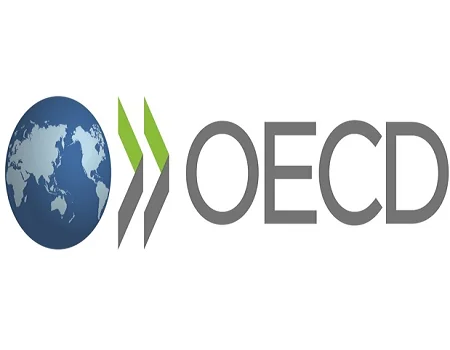

After a rebound of 5.6per cent in 2021, global growth would move along at a brisk pace of 4.5per cent in 2022, moderating to 3.2per cent in 2023, says the Organisation for Economic Co-operation and Development (OECD).
In its economic outlook, the international organisation that works to build better policies for better lives observed that the global economy continues to recover, along with trade, employment and incomes.
But the revival is unbalanced, with countries, businesses and people facing very different economic realities.
It noted that recent improvements also conceal structural changes, which mean that some sectors, jobs, technologies and behaviours will not return to their pre-pandemic trends.
“The situation is extraordinary yet our economic outlook is cautiously optimistic,” the body noted.
The OECD outlook believes that the central scenario is that the global recovery continues, with the world coping better with the pandemic and monetary and fiscal policies remaining generally supportive throughout 2022.
“Striking imbalances have emerged. First, there are marked differences in the recovery across countries, reflecting national health conditions, the policy mix and sector composition.
“Second, acute labour shortages are appearing in some sectors, even though employment and hours worked have yet to fully recover. “Third, a persistent gulf between supply and demand for some goods, together with higher food and energy costs, has led to higher and more enduring price increases than expected,” it read in part.
These imbalances create uncertainty and more downside than upside risks.
It said its primary concern is the global polarity in caseloads, hospital capacity and vaccination rates around the world.
The harshest scenario is that pockets of low vaccination end up as breeding grounds for deadlier strains of the virus, which go on to damage lives and livelihoods.
Even in more benign scenarios, ongoing coronavirus outbreaks may continue to restrict mobility in some regions and across borders, with potentially long-lasting consequences for labour markets and production capacity, as well as prices the body stated.
“Inflation is on everybody’s minds and there is a lot of uncertainty about central banks’ reactions. Our analysis suggests that as the health situation improves, demand stabilises and people return to the labour force supply bottlenecks should fade.
“Inflation is now expected to peak at the turn of 2021-22 before receding gradually to around 3 per cin the OECD as a whole by 2023.
“In current circumstances, the best thing central banks can do is to wait for supply tensions to diminish and signal they will act if necessary. Should supply constraints persist, while GDP and employment continue to grow briskly and fuel broader price increases, higher inflation pressure could last longer, destabilising people’s expectations. That would call for action,” the OECD noted.
The next big concern is the risk that policymakers fail to act on lessons from the crisis. Policymakers implemented unprecedented measures to support their economies at the onset of the crisis. Without these timely actions, the situation today would be far worse than it is. But now that the recovery is underway they face a tough balancing act, according to the organization.
Finally, it expressed concern that governments may fail to address the vulnerabilities the pandemic has revealed and amplified.
A primary flaw revealed by the pandemic is health care. Preventive and curative health care systems need reform, pandemic preparedness needs improvement and the distribution of medical equipment and drugs needs better co-ordination.
It also said that failure to take these steps would be inexcusable.
“Second, school closures have harmed the education of young people and made their integration into labour markets difficult.
“So far, too little has been done to assess and tackle these scars. The longer we wait, the worse the damage will be.
“The recovery is real, but the task for policy makers is a tough one. They must balance prudence, patience, and persistence while developing new and improved plans to transform economies in ways that will build much better resilience to the risk of rising imbalances,” it stated.
YOU SHOULD NOT MISS THESE HEADLINES FROM NIGERIAN TRIBUNE
We Have Not Had Water Supply In Months ― Abeokuta Residents
In spite of the huge investment in the water sector by the government and international organisations, water scarcity has grown to become a perennial nightmare for residents of Abeokuta, the Ogun State capital. This report x-rays the lives and experiences of residents in getting clean, potable and affordable water amidst the surge of COVID-19 cases in the state.
•Demands CTC of INEC advice to PDP •Insists commission’s interference is contempt of S/Court judgment…
The 2023 presidential candidate of the New Nigeria Peoples Party (NNPP), Dr Rabiu Musa Kwankwaso,…
Tribune Online gathered that passengers in the Kwara boat mishap were returning from market expedition…
Agbakoba, ex-Kogi speaker, others slam lawmakers Legal luminaries, university teacher, former lawmakers among other prominent…
A major shift is underway in the digital asset landscape. As Bitcoin stabilizes above the…
It’s that time of the year again when we reflect, raise awareness, and remind ourselves…
This website uses cookies.